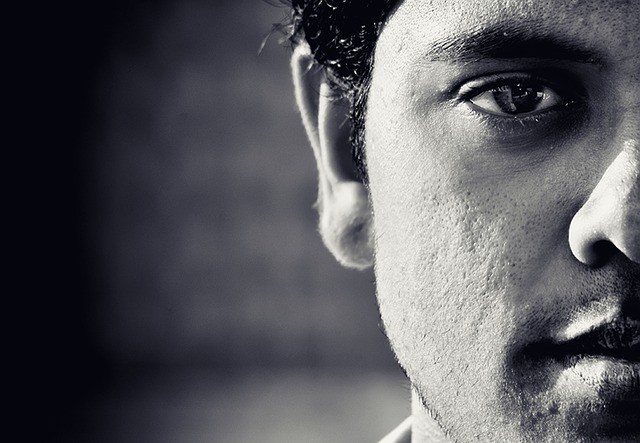How to Tell Your Partner You Have Sexually Transmitted Disease (STD)
Sexually transmitted diseases, or STDs, are a serious matter. Telling your partner you have one is therefore an urgent, and terrifying thing to do.
Sex is grown up stuff. It is great fun, but carries with it many very grown up risks and responsibilities. Sex can lead to pregnancy, disease, deadly jealousy (go read “Othello” if you need a refresher), heartbreak, crippling resentments, depression, and so on. Just because those negative consequences aren’t common, that doesn’t mean you can just ignore them. You should be aware of what you’re doing, what you’re risking, and be prepared.
Be Responsible
As a responsible sexual partner, you should – especially if you aren’t in a monogamous, long-term relationship – be aware of the risks of STDs and take precautions. Practice safe sex, and talk to your partner about how safe you want your sex to be. Both of you should contribute to this conversation and both of your needs and concerns should be met. Use condoms and be responsible.
Even if you’re using condoms and being safe, get tested for STDs regularly if you have more than one sex partner, or if your partner has more than one sex partner. If you don’t know anything about how to get tested, ask your doctor.
Your doctor is a medical professional and can give you good advice and point you in the direction of places to be tested. Don’t be embarrassed to talk to your doctor about sex or STDs – they’ve heard it all and will not judge you. Your doctor has your best interests at heart.
Testing
A quick search will also enable you to find local medical clinics or community testing centers that are professional, reliable and anonymous. Look for one of them if you are particularly shy, afraid or embarrassed about testing. These places, like your doctor, can also give you helpful advice if you test positive for an STD. They can suggest ways to get help, both medical treatment and psychological or social counseling if you need it.
Getting tested for STDs every six months if you are sexually active is a good rule of thumb.
If you find you have contracted an STD, don’t panic. Sex is a toxic and taboo subject in our society, a weird combination of a very public subject (everyone’s talking about it and it is everywhere in popular culture) but also a very private thing. This duality can make people crazy. Many of us have fear, shame, embarrassment, or serious psychological hang ups around sex. Just having a normal, happy sex life takes a lot of trouble!
When you add in the perceived shame and guilt of an STD on top of all these toxic taboos, the result can be devastating.
First, get the facts. Find out exactly what disease you have, and learn about its symptoms, how serious it is, and how it is treated.
Take care of yourself at once. Don’t have sex with anyone until you know exactly what the risks are, and have discussed those risks with your partner.

You may feel terrified, ashamed, guilty, furious, frustrated, sad, confused, or all of these. Give yourself a little time to digest the news and to come to terms with it.
It’s often helpful to talk to someone like a good friend about your situation. If you have a close friend whom you trust to listen and support you, contact them and explain your situation. They can support you as a friend, and can also help you get ready to tell your partner about your STD.
How to Tell Your Partner
As far as telling your partner, it is a very straightforward process. Sit them down, look them in the eye, and tell the truth. Let them have their own emotional reaction to the news – remember how anxious, afraid or angry you felt at first – without trying to manage or control their reaction.
Don’t try to minimize the situation by telling them, “It’s no big deal,” or “It’s OK.” Just tell them the facts and let them react.
You may worry that your partner will judge you, blame you, or break up with you. These are all possible. But you really don’t know what’s going to happen, so try to limit your expectations.
When an STD Is Acquired Through Cheating
One complicating factor in disclosing an STD in many relationships may be that it was acquired through cheating or illicit sexual encounters outside a marriage or committed, monogamous relationship. If this is the case, your emotions will probably be much more severe.
You may be terrified and guilty and your first instinct may be to hide the facts from your partner or spouse. This attitude, like a proverbial ostrich hiding its head in the sand, is not helpful.
Think about it. If your partner later contracts this STD themselves, they’ll know pretty clearly where it came from, and then you will be in double trouble – how did you get this STD and why didn’t you tell me when you got it?
So if you’ve gotten an STD through sex outside your marriage or relationship and you’re scared and ashamed to tell your partner, get some help. Again, a trusted friend can give you a lot of support. Work out what you’re going to say in advance, writing it down if needed.
Keep it simple and on message. Tell them the facts and then let them react. Don’t try to excuse your actions or blame your partner or anyone else. Be a grown up and accept blame for what you’ve done.
Bookending For Support

Tell your friend you will call them back as soon as the meeting is over. This gives you the support of another person before, during and after the talk.
You will know, while you are going through the difficult discussion, that your friend is waiting for you to call back in a little while. That will also help you stay a bit calmer because you know the conversation won’t go on forever, and you know there will be a sympathetic phone call at the end.
In extremely difficult situations, you may not feel safe disclosing to your partner alone, or you may simply be too paralyzed by fear. Seek the help of a professional therapist or counselor. They can help you prepare for the disclosure, and, in some cases, they can be present as a neutral referee during the conversation.
The best thing to do if you have an STD is to let your partner know promptly. If you prepare yourself and get some support, you will get through this ordeal, no matter how difficult it seems.

